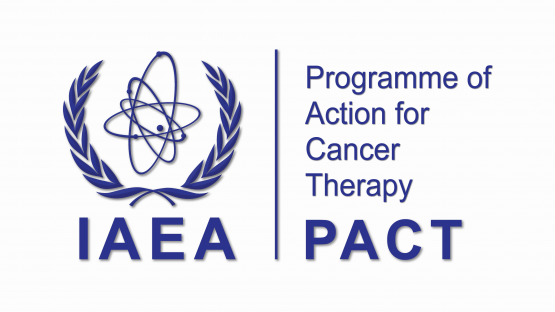Leading cancer experts and policymakers meeting in London, UK, on 10-11 May voiced support for an action plan designed to tackle Africa's growing cancer crisis.
The London Declaration on Cancer Control in Africa resulted from a two-day forum dedicated to raising awareness of the crisis and finding strategies for effective, sustainable solutions. African officials, health professionals, international organizations and cancer charities all agreed such a Declaration was crucial to building momentum from the meeting.
“The last two days have been marked by an enormous sense of goodwill and shared endeavour to deal with a problem that is huge and which, without action, can only grow,” said Alan Milburn, British MP and chairman of the meeting. “We will seek to galvanize a range of support to make sure we can turn good intent into firm action,”
The London Declaration builds on two earlier documents — the Cape Town Declaration on Cancer Control in Africa (IAEA, December 2006) and the World Cancer Declaration (UICC, July 2006). The London blueprint sets out six essential elements for comprehensive cancer control programmes:
- Cancer surveillance/registries and national cancer plans
- Prevention programmes
- Early diagnosis and screening programmes
- Treatment
- Palliative care
- Training and Research
According to the World Health Organization (WHO), 12.5% of all deaths worldwide are caused by cancer — that's more than from HIV/AIDS, tuberculosis and malaria combined. Experts warn that new cases will double within the next 20 years, 70% of them in developing countries, unless action is taken now. In Africa, over-burdened health systems are often unable to deliver cancer care services and more than half a million people currently die of the disease each year. Yet, tragically, one third of all cancers in Africa are preventable and another third are curable under the right conditions.
“African health ministers and professionals are an extremely dedicated team of people. They are aware of the problems and the scale of the suffering,” said Massoud Samiei, Head of PACT. “We have the means to help them. But if we don't create an international forum for tackling this crisis, for many there will be no chance of survival.”
The London meeting was organised jointly by the University of Oxford's Africa Consortium (AfrOx) and IAEA/PACT. While pledging to “prevent the preventable and cure the curable”, all partners to the London Declaration agreed that such a commitment can only succeed as part of a collaborative effort. PACT draws on the IAEA's long experience in delivering radiation technology and cancer management systems to the world's poorest nations. Since it was founded in 2004, PACT has been working towards building just such a global alliance to fight cancer in the developing world.
The London meeting attracted 130 participants, including:
- African Health Ministers or their representatives
- African and international leading oncologists
- Members of the UK parliament
- Representatives from the pharmaceutical industry.
- International organisations and charities:
- African Development Bank
- African Organisation for Research and Training in Cancer (AORTIC)
- African Palliative Care Association
- American Cancer Society (ACS)
- Bill and Melinda Gates Foundation
- Breakthrough Breast Cancer
- Cancer Research UK (CR UK)
- European Society for Medical Oncology (ESMO)
- Global Health Workforce Alliance(GHWA)
- International Agency for Research on Cancer (IARC)
- International Atomic Energy Agency (IAEA) through its Programme of Action for Cancer Therapy (PACT)
- International Network for Cancer Treatment and Research (INCTR)
- International Society of Paediatric Oncology (SIOP)
- Union for International Cancer Control (UICC)
- Medical Research Council (MRC)
- National Cancer Institute (NCI) (U.S.A.)
- National Cancer Research Institute (NCRI) (U.K.)
- Organisation of European Cancer Institutes (OECI)
- Oxfam
- Princess Nikky Breast Cancer Foundation
- Tropical Health and Education Trust (THET)
- University of Oxford (through: AfrOx)
- World Bank
- World Health Organization


